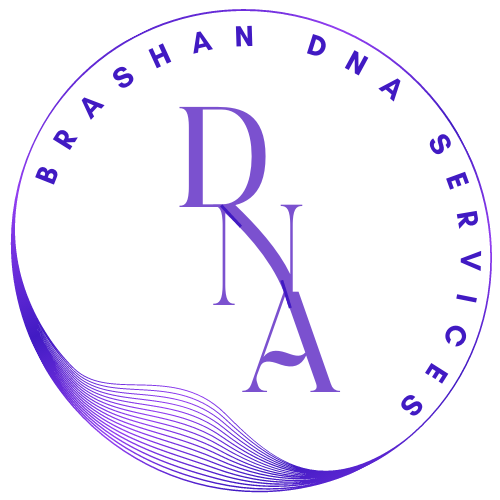When it comes to DNA testing, here are the most frequently asked questions and the answers you need to know.
For anyone interested in finding out the truth about biological relationship, DNA is where the worlds of science and genealogy meet. Whether you’re about to take a paternity DNA test or have already taken one, there are certain things you’ll want to know about the whole process.
Order a DNA kit at https://brashandna.com/
This list of DNA questions and answers will help you make the most of your test results and ultimately enrich your family history.
What is DNA?
Deoxyribonucleic acid or DNA, as it’s widely known, is a molecule found in all living organisms. It consists of two long coils intertwined in a spiral – the double helix you’ll no doubt recognize.
Everyone’s DNA carries their unique genetic information and some of this gets passed down through families over generations.
What are chromosomes?
The coiled strands of DNA in a human cell are called chromosomes. Humans have 46 chromosomes, inheriting half of them from their mother and half from their father.
What are genes?
Genes are units within each chromosome. They are transferred to offspring from parents and determine different characteristics such as hair and eye color.
How do DNA tests work?
When you take a DNA test, your unique DNA makeup is compared with a reference alleged biological relative. With Brashan DNA, your sample is analyzed and the complex technology compares it to those of the alleged relative, pinpointing alleles common to both you and the alleged biological relative.
How do DNA tests determine ancestry?
DNA testing can help to determine your ancestry by using your DNA sample and its comparison to others, to signify your ethnic origins and the regions your ancestors came from.
Taking a DNA test can guide you down certain avenues of family research or help verify existing discoveries. What’s more, you can use your results to find living DNA matches – distant cousins and other relations who share your lineage.
Do DNA kits expire?
Yes, unopened DNA kits expire after a year.
Once you’ve taken the saliva swab, it must be returned within six months to remain a viable sample.
What happens to my data when I take a DNA test?
With Brashan DNA, your privacy and protection is our top priority. We only use your genetic details to determine what you ask us to analyze for. Beyond that, you control your data and how it is used. All of your data is stored on secure servers and only our staff, vital partners such as laboratory technicians and you have access to it. That’s why we are trusted for protecting your privacy.
What is Y-DNA?
Y-DNA is only found in males and is passed from fathers to their sons. This means that only men can use Y-DNA to trace their genetic ancestry and a Y-DNA test only examines paternal lineage. Females who want to explore their direct paternal line should ask their father, brother, paternal uncle, paternal grandfather, or a male cousin on their father’s side to take a Y-DNA test
What is mtDNA?
Mitochondrial DNA (mtDNA) is transmitted from mother to child. As such, direct maternal ancestors can be traced by either men or women using mtDNA tests.
We are the only testing laboratory in the UK to guarantee results either the same working day (an additional £70) or the next day (an additional £50) for all DNA tests except prenatal DNA tests.
Your secure, password-protected results will be emailed to you as standard.

